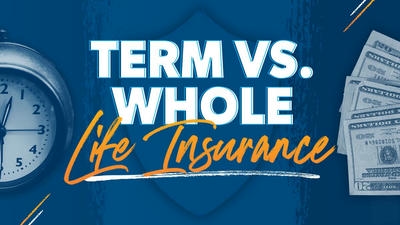
Estate planning is an essential process for anyone who wants to ensure that their assets are distributed according to their wishes after they pass away. While many people associate estate planning with wills and trusts, one key component that often gets overlooked is life insurance. Life insurance plays a significant role in creating a comprehensive estate plan, providing financial security for your loved ones, and contributing to overall wealth management.
Understanding Estate Planning
What is Estate Planning?
Estate planning is the process of organizing your financial affairs and making decisions regarding the distribution of your assets after your death. The primary goal is to ensure that your wishes are honored, to minimize taxes, and to provide for your family members. An estate plan can encompass a variety of documents, including wills, trusts, power of attorney, and healthcare directives.
The Importance of Estate Planning
Having a solid estate plan is critical for several reasons:
- Protection of Assets: An effective plan helps protect your assets and ensures they are distributed according to your wishes.
- Minimization of Taxes: A well-structured estate plan can reduce estate and inheritance taxes, preserving more wealth for your heirs.
- Family Support: Estate planning provides financial support for your loved ones during a difficult time, ensuring they can meet their needs.
- Peace of Mind: Knowing that your affairs are in order offers peace of mind for both you and your family.
The Role of Life Insurance in Estate Planning

1. Providing Financial Security for Beneficiaries
One of the primary functions of life insurance in estate planning is to provide financial support for your beneficiaries after your death. The death benefit received from a life insurance policy can cover immediate expenses, such as funeral costs, medical bills, and outstanding debts. This financial cushion can alleviate the burden on your loved ones during a challenging time.
2. Income Replacement
If you are the primary breadwinner for your family, your death could leave them in a precarious financial situation. Life insurance can serve as an income replacement, ensuring your family can maintain their standard of living even after your passing. The death benefit can help cover everyday expenses, mortgage payments, and educational costs for your children, allowing them to continue their lives with as little disruption as possible.
3. Paying Off Debts and Loans
Upon your death, any outstanding debts, such as mortgages or personal loans, may fall to your estate. Life insurance can provide the necessary funds to pay off these debts, preventing your assets from becoming encumbered. By ensuring that debts are settled, your beneficiaries can inherit your estate free from financial obligations, simplifying the transfer of assets.
4. Covering Estate Taxes
Estate taxes can be significant and may take a considerable portion of your estate's value. Life insurance can be an effective tool for covering these taxes, as the death benefit can be used to pay any estate taxes incurred upon your passing. This is particularly important for individuals with large estates, where estate taxes can significantly reduce the inheritance left to heirs.
5. Funding a Trust
Life insurance can also be used to fund a trust, providing liquidity for future distributions. For example, if you establish a trust for your children, the death benefit from a life insurance policy can provide the necessary funds to support the trust’s objectives. This arrangement ensures that your beneficiaries receive financial support even if your estate lacks immediate liquidity at the time of your death.
6. Equalizing Inheritances
In families with multiple heirs, life insurance can be used to equalize inheritances, ensuring that each beneficiary receives comparable value. For instance, if one child is set to inherit a family business or property, life insurance can provide an equivalent value to the other heirs. This approach helps prevent disputes among siblings and maintains harmony within the family.
7. Charitable Giving
Individuals who wish to make charitable contributions can use life insurance as a vehicle for these gifts. By naming a charitable organization as a beneficiary of a life insurance policy, you can ensure that a significant portion of your estate goes to causes that matter to you. This strategy can also provide a means of leaving a legacy while potentially offering tax advantages.
Types of Life Insurance Policies
1. Term Life Insurance
Term life insurance provides coverage for a specified period, typically ranging from 10 to 30 years. This type of insurance is generally more affordable than permanent life insurance and can be an excellent option for individuals looking to cover specific financial needs, such as income replacement or debt coverage.
2. Whole Life Insurance
Whole life insurance offers lifelong coverage, provided that premiums are paid. This type of policy includes a cash value component that accumulates over time, allowing policyholders to access funds during their lifetime. Whole life insurance can be beneficial in estate planning because it guarantees a death benefit and can serve as a savings vehicle.
3. Universal Life Insurance
Universal life insurance is a flexible permanent policy that combines life insurance with an investment component. Policyholders can adjust their premiums and death benefits, allowing for greater customization based on their financial needs. The cash value can grow based on interest rates or market performance, contributing to your estate's value.
4. Variable Life Insurance
Variable life insurance offers policyholders the ability to allocate cash value among various investment options, such as stocks and bonds. This potential for growth can be appealing, especially for individuals interested in building wealth while maintaining life insurance protection. However, variable life insurance carries investment risks that should be considered in an estate plan.
Considerations for Incorporating Life Insurance into Estate Planning

1. Assess Your Needs
Before incorporating life insurance into your estate plan, evaluate your financial situation and the needs of your beneficiaries. Consider factors such as outstanding debts, future financial obligations, and the lifestyle you wish to maintain for your loved ones.
2. Choose the Right Policy
Selecting the appropriate life insurance policy is crucial. Understand the various types available, and consider factors such as coverage amounts, premium costs, and the financial stability of the insurance provider. Consulting with a financial advisor can help you make informed decisions.
3. Review Beneficiary Designations
Regularly reviewing and updating beneficiary designations is essential to ensure that your intentions are honored. If your life circumstances change, such as marriage, divorce, or the birth of children, it is important to update your policy to reflect these changes accurately.
4. Consider Ownership Structures
The ownership structure of your life insurance policy can impact your estate plan and tax implications. In many cases, it may be beneficial to transfer ownership of the policy to an irrevocable trust or another person to remove it from your taxable estate. Consulting with an estate planning attorney can provide guidance on the best approach for your situation.
5. Plan for the Future
Life insurance should be one component of a comprehensive estate plan. As your financial situation evolves, revisit your estate plan regularly to ensure it remains aligned with your goals. This proactive approach can help you adapt to life changes and ensure your loved ones are adequately protected.
Common Misconceptions About Life Insurance and Estate Planning
1. "Life Insurance Is Only for Young Families"
While young families often prioritize life insurance for income protection, life insurance is beneficial for individuals of all ages. Older individuals can use life insurance for estate planning, wealth transfer, and covering potential estate taxes.
2. "Life Insurance Is Too Expensive"
Many people assume that life insurance is prohibitively expensive. However, there are various options available to fit different budgets. Term life insurance, in particular, tends to be more affordable, providing substantial coverage at a lower cost.
3. "I Do Not Need Life Insurance If I Have a Lot of Savings"
While savings can provide financial security, they may not be sufficient to cover all expenses related to death, including funeral costs and estate taxes. Life insurance can complement savings, ensuring your loved ones have the necessary resources during a difficult time.
4. "My Will Covers Everything"
Many individuals believe that their will covers all aspects of their estate plan. However, life insurance policies operate outside of probate and require separate beneficiary designations. It is essential to ensure that these designations are current and aligned with your overall estate plan.
Conclusion

Life insurance serves a crucial purpose in estate planning, providing financial security and peace of mind for you and your loved ones. By understanding the various functions of life insurance and how it can integrate into your estate plan, you can make informed decisions that ensure your wishes are honored and your family is protected.
Incorporating life insurance into your estate plan safeguards your assets, helps cover debts and estate taxes, equalizes inheritances, and supports charitable giving. As you move forward with your estate planning, consider your unique financial situation, evaluate your insurance options, and consult with professionals to create a plan that meets your needs. By doing so, you can build a legacy that provides support, protection, and peace of mind for future generations.








